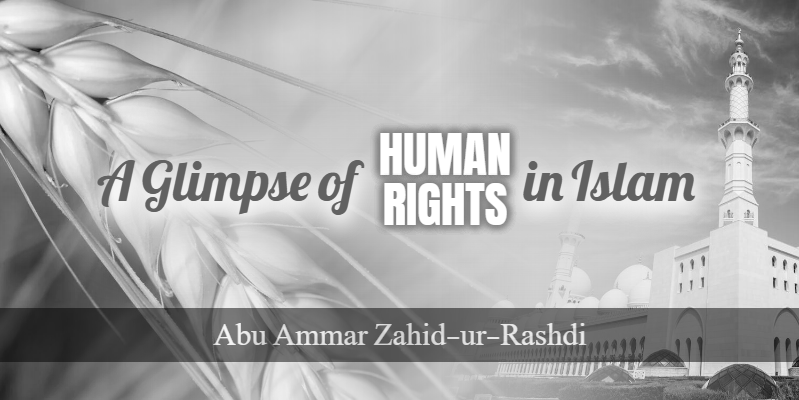A Glimpse of Human Rights in Islam
https://zahidrashdi.org/669
(الشریعہ — اکتوبر ۲۰۲۴ء)
الشریعہ — اکتوبر ۲۰۲۴ء
جلد ۳۵ ۔ شمارہ ۱۰
قراردادِ مقاصد کا پس منظر اور پیش منظر
مولانا ابوعمار زاہد الراشدی
دستور میں حکومتی ترامیم: ملی مجلسِ شرعی کا موقف
ڈاکٹر محمد امین
اردو تراجمِ قرآن پر ایک نظر (۱۱۷)
ڈاکٹر محی الدین غازی
انسانیت کے بنیادی اخلاق اربعہ (۱)
شیخ التفسیر مولانا صوفی عبد الحمید سواتیؒ
مسئلہ جبر و قدر: متکلمین کا طریقہ بحث
ڈاکٹر محمد زاہد صدیق مغل
’’اقوالِ محمودؒ‘‘ سے ’’نکہتِ گُل‘‘
مولانا فضل الرحمٰن
علما کیا خاموش ہو جائیں؟
خورشید احمد ندیم
مدارس دینیہ میں تدریسِ فقہ: چند غور طلب پہلو
ڈاکٹر عبد الحی ابڑو
اہلِ کتاب خواتین سے نکاح: جواز و عدم جواز کی بحث
مولانا ڈاکٹر محمد وارث مظہری
جارج برنارڈشا کی پیشِین گوئی
حامد میر
سید مخدوم اشرف جہانگیر سمنانی، اردو کے پہلے ادیب و مصنّف
طفیل احمد مصباحی
صحابیاتؓ کے اسلوبِ دعوت و تربیت کی روشنی میں پاکستانی خواتین کی کردار سازی (۲)
عبد اللہ صغیر آسیؔ
حضرت الشفاء رضی اللہ تعالیٰ عنہا
مولانا جمیل اختر جلیلی ندوی
افغانستان میں طالبان حکومت کے تین سال
عبد الباسط خان
سائنس یا الحاد؟
ہلال خان ناصر
ختمِ نبوت کانفرنس مینار پاکستان پر مبارکباد
مولانا ابوعمار زاہد الراشدی
A Glimpse of Human Rights in Islam
مولانا ابوعمار زاہد الراشدی





